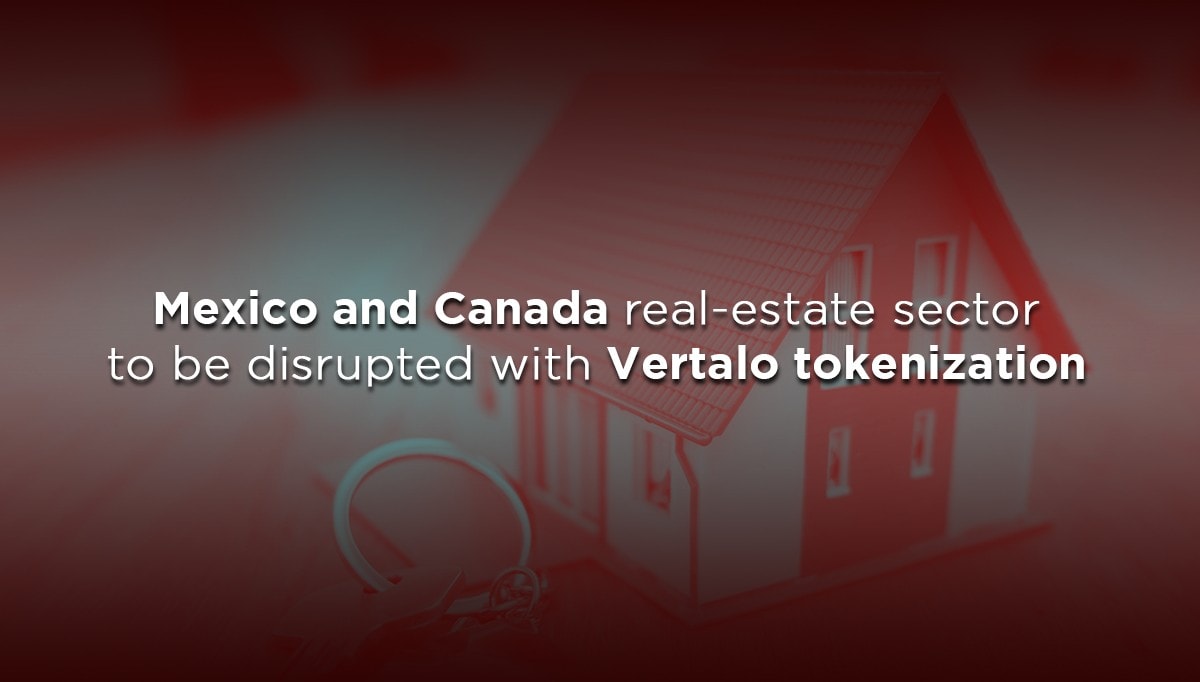MountX Real Estate Capital has provided a license to the transfer agent Vertalo design and launch tokens for close to 15 digital real estate projects in Mexico and Canada which will range from 2020 and early next year. This announcement came in last week. The press statement so released panned out details of the new announcement. The new deal will be one of the four deals that have been planned by Vertalo’s real estate division that was launched in June this year. The new launch brings with it a new concept that could become a reality which is the tokenization of real estate assets.
Vertalo is a platform that connects and triggers the security token ecosystem with blockchain technology. It is a cap table investor onboarding platform and a pioneer in direct custody to enable the digital asset economy. It supports the ongoing asset management needs of brokers and dealers as well as private companies. It enables any private asset to be immediately tokenized which is stored in the verified wallet of the asset. It also enables real-time trade based on the smart contract between the issuer and the investor. Vertalo is registered with the Securities and Exchange Commission as a record-keeper in the cryptocurrency industry.
Real Estate tokenization is a disruptive concept that can be a popular blockchain use case. With cryptocurrency firms like AlphaPoint and Harbor already putting out initiatives in the past to bring blockchain to real estate, investors were finding it difficult to hang to the new promises made by these firms of trading tokenized firms on a public ledger.
One of the problems experienced at that time was that to increase liquidity they had to get their tokens out and the institutions were to see liquidity before any change in operations were called. Due to this, these previous deals included Harbor’s partnership with real-estate division of DRW holdings. Drawing analogies to the previous failures, Vertalo co-founder and CEO Hendricks confidently says that the 2018 launch was hype for real-estate tokenization because the reality dawning for the concept was at least 2 years ahead because technology would take that much time to evolve. But if it had to become a reality, it could have been possible for three years, but the alternative trading systems (ATS) and exchanges that would deal with these debt instruments were still seeking regulatory approval.
He believes that in the entire scheme of things, digital transfer agents like Vertalo were missing in action. They could easily facilitate shareholder data for efficient record-keeping purposes. Now that 2020 has resuscitated a new interest in the real estate sector, we have already seen in February that the commercial real estate platform Red Swan has already partnered with the token platform Polymath for a tokenization deal of $2.2 billion in the sector. Vertalo also has signed a deal with the noted trading platform tZERO for a tokenization deal worth $300 million. With more such deals coming on the table, real-estate tokenization might just become the new normal this year.


